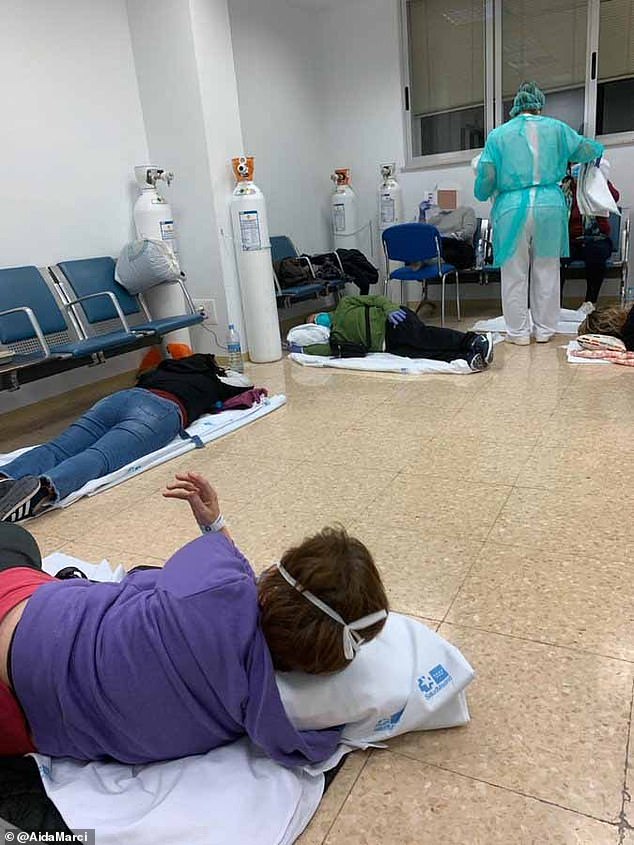March 30th, 2020
This pandemic is certainly sorting out the men from boys. It’s also bringing out the best and, tragically, the worst in people. There will be a reckoning.
In Canada, Ontario Premier Doug Ford, a favorite figure of ridicule by the Fake News media, has stepped up to the plate and is receiving a good deal of praise from across the country—and the political spectrum—for his calm and focused response to the crisis. In the US, President Trump seems, likewise, to have adjusted rapidly and is taking charge. On the other hand, Nancy Pelosi, the Speaker of the House of Representatives, after wasting months on a spiteful, pointless “impeachment” process, is still preoccupied with personal insults in the midst of a national and international emergency.
Progress is being made on developing an antibody test which will be essential for determining who has been infected but who never may have shown symptoms. They will be immune, at least for while. According to Science magazine, Singapore is setting the pace here.
The test was developed by a team led by Linfa Wang, an emerging disease specialist at Duke-NUS. In blood samples from recovered patients, the team identified antibodies targeting the spike protein that proved able to block the virus from killing cells in laboratory tests. In parallel, they created synthetic viral proteins that can detect those antibodies in a blood sample without having to use the live virus.
Daily New Cases in Spain [Johns Hopkins University].
The daily new cases in Spain is showing some decline over the past five days, which is some encouraging news. But this may show a rise with increased testing of the population.
In a very revealing article by Spanish journalist and author, Ixtu Diaz, he discusses the fantasies that occupy the liberal mind in the EU and the real world that we all live in.
On November 28th, 2019, the European Union officially and solemnly declared the “climate emergency,” in a ceremony presided over by the would-be 17-year-old prophet Greta Thunberg. Today, almost four months later, in the midst of a real emergency, the only thing that remains official and solemn in that declaration is its ridiculousness.
And …
The reactions of politicians in Europe reflect the bewilderment of those who were living in the Matrix and have just been awakened. Most governments in Europe have moved from denial to chaos. But probably the most vile reaction has been that of the Social Communist government in Spain, which encouraged Spaniards to participate massively in the March 8 feminist rallies, the next day hiding reports that the coronavirus was already out of control in the country — something they may well have to answer for in court. Vice President Carmen Calvo said at the time that to attend the demonstrations was a moral obligation for all Spaniards: “what is at stake is the life” of many people. She was referring to violence against women, I think. It goes to show that Sanchez’s government only tells the truth by accident. Yes, many people’s lives were at stake, as we have unfortunately found out. Now Calvo is recovering from coronavirus, as are most of the members of government who took part in the demonstrations. Of course, the Spanish do not seem to be worried about the government’s taking a few days holiday: It’s worse when they’re actually on the job.
And on our side of the pond, in the US, long held as the bastion of free enterprise, it turns out that the major holdups have not been from politicians (although they have there share too), but from all the bureaucratic red tape for protecting “privacy” and, of course, that utterly useless “precautionary principle” which guarantees that nothing can get done when required. From the New York Post:
It’s the latest example of red tape gone awry that could prove deadly. It took weeks for the feds to waive regs even on coronavirus testing kits. For more than a month, the Centers for Disease Control and Prevention only allowed the use of its test — which proved to be inaccurate much of the time — even as companies were champing at the bit to produce better and faster kits.
South Korea kept the spread of the virus under better control than most countries because of its widespread testing, something that took the United States months to match.
N95 respirator masks are produced for medical use and construction-industry use. But manufacturers of those made for the former have to jump through a ton of extra hoops — special tests of flammability and strength, for example — because they’re classified as medical devices…..
…Why didn’t the feds immediately waive those non-essential requirements when it became clear it was crunch time? Mostly because bureaucrats assume they can only get in trouble for allowing something that later produces problems, rather than for stopping something that was actually fine — a rule that’s all too true in normal times.
Perhaps governments could learn a few lessons for the future: emergencies actually have to be prepared for, not just talked about.
Rebel Yell











